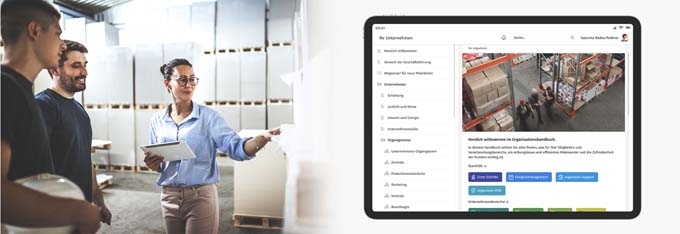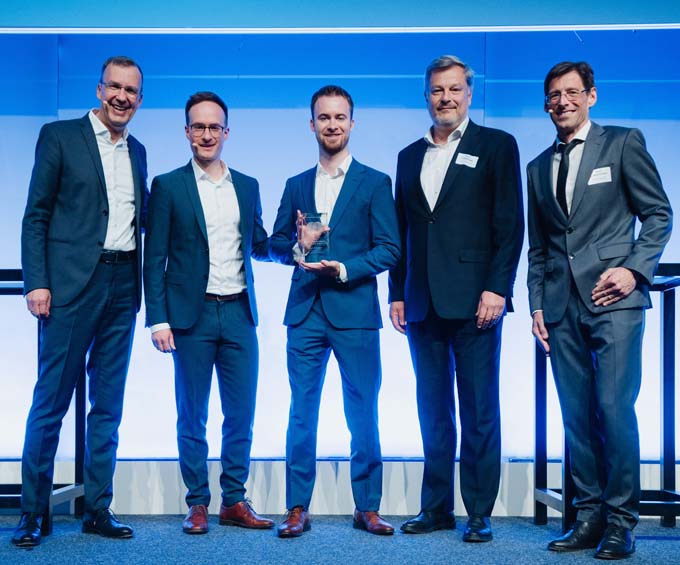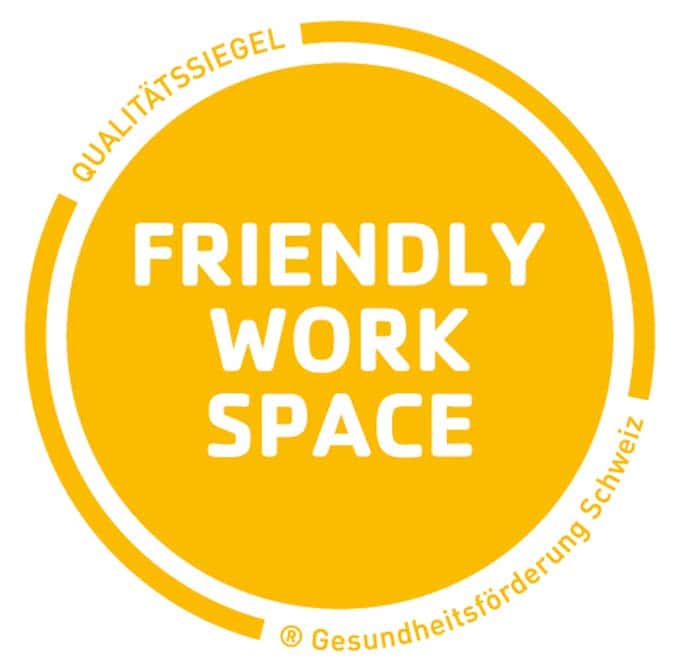Legally compliant auditing: Making a remote audit a success
Never before has a home office or mobile working been possible as naturally as it is today. The unanimous opinion of the experts is that the economy, society and the environment will continue to benefit from the path taken for a long time to come. A lot has also happened in the area of (remote) auditing: It has been able to establish itself more and more as an alternative and supplement to on-site auditing.

It has long been taken for granted that for a Audit at least large parts of the legally compliant inspection tasks can be carried out remotely. Of course, the personal presence of the auditor is also required for certain checks in the course of certification. Nevertheless, the hybrid audit form saves time and money - for everyone involved. This is a great benefit that no one would want to miss. In order for such an audit to lead to legally compliant certification, however, the framework parameters must be right.
Large companies and groups in particular have quickly realised the potential of audits that take place at least partly by video - after all, they are regularly checked by several specialists. Even a hybrid audit can significantly increase efficiency if one or two auditors are on site at the client's premises and other employees follow the audit virtually and check the documents in the meantime. Companies should be aware that a classic audit should not take place on a one-to-one basis via video, and should observe some general conditions for a successful implementation.
Professional impression via video
The basis for a remote audit is initially a computer or notebook with Internet access and the use of a video platform (e.g. WebEx or Microsoft Teams). Although an audit is about hard facts, these, together with other impressions, provide an overall picture of a company. For this, a good camera, appropriate lighting conditions as well as the quality of the sound are important. Those involved should think about the image detail, the background and a high-quality headset in advance. After all, these factors have a decisive impact on the impression the other person gets from the video. Both the technical infrastructure and the competence in operating the tools used are prerequisites for virtual work and remote audits: Everyone involved must be fit to handle the technology so as not to be distracted from the actual task.
Time for human interaction
During a personal appointment, auditors first get to know the reception area of a company and the first employees - quite automatically. Here, a personal impression of people, building, infrastructure and corporate culture is created. This arrival is missing in a remote audit. However, the interpersonal relationship work should not be forgotten and instead time should be deliberately planned for a brief introduction and getting to know each other before moving on to the technical and factual level. It has proven useful to appoint a moderator at the beginning. In this way, several small breaks can be planned and the meeting structured for all participants.
Asking the right questions is a central task of auditors. It is often possible to recognize in the non-verbal area where it is worthwhile to follow up. Here, unconscious behaviors play an important role, which often cannot be recognized on video - due to the perspective. All the more decisive is a good coordination between all participants in advance: What do you want from each other so that the audit is a success? Should company sites also be visited or should other employees be included in the discussion? With the right preparation, requirements can be clarified and organised in good time.
Digital documentation and collaboration
For a remote audit, the files, processes, procedures and documentation to be certified must be available digitally. Companies also need a collaborative tool to make this data available and edit it simultaneously. For real time savings, applications need functionalities that support the audit efficiently. The prerequisite for a remote audit is the use of process-supporting management software. Software solutions that the companies to be certified use continuously for quality management make a significant contribution here. During a remote audit, all parties involved can find the documents relevant to the audit here.
For companies, it makes sense to rely on an application that meets the requirements of an integrated management system and at the same time supports the areas of QM documentation as well as the development and expansion of a quality management system (QMS). In advance, organizations can grant temporary access to the auditors for a first orientation. This saves time in later discussions and enables both synchronous and asynchronous work. With an auditing function, the manual can be checked against a catalogue of criteria and findings documented. In the event of a deviation, a corrective measure is immediately defined and stored in the system - this also applies to comments made by the auditors. Modern solutions, such as orgavision, also take over the documented assignment of downstream tasks to the right people. With the right software, certification-compliant preparation can be achieved by transferring and importing existing requirement catalogues. The digital linking of relevant documents has also proven its worth. A QMS also scores points when it comes to traceability: auditors can easily see how the organisation has developed since the last audit, as it shows not only the current documentation, but also who has worked on what and when. With the help of comments and event management, it is also easy to implement the requirement demanded by DIN EN ISO 9001 and other management standards to document the continuous improvement process (CIP).
Author:
Johannes Woithon is the managing director of orgavision GmbH, based in Berlin. www.orgavision.de









